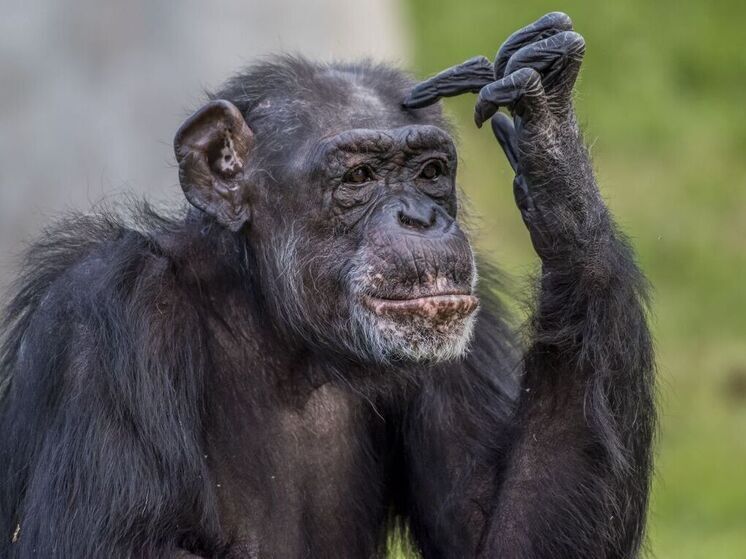The roots of human addiction to alcohol have been found in the daily lives of primates.

The discovery showed that wild primates consume significant doses of ethanol from fermented fruits.
Wild chimpanzees in the forests of Uganda and Côte d'Ivoire regularly consume alcohol, a daily amount of ethanol equivalent to two and a half drinks per day for humans. This discovery, made by an international team of scientists, supports the so-called drunken ape hypothesis, which suggests that the human craving for alcohol has deep evolutionary roots.

test banner under the title image
The daily diet of wild chimpanzees conceals an unexpected element: regular alcohol consumption. An international team of researchers has discovered that the primates consume fermented fruits containing ethanol in quantities equivalent to several drinks a day for humans. The scientists analyzed the alcohol content of twenty-one types of fruits that form the staple diet of chimpanzees in Kibale National Park in Uganda and Tai National Park in Côte d'Ivoire. Although the ethanol concentration in each individual fruit was low, averaging only about 0.3 percent, the colossal volumes of fruit consumption—5 to 10 percent of an animal's body weight daily—result in a significant cumulative dose.
Calculations showed that, on average, each chimpanzee consumes approximately 14 grams of pure alcohol per day. For comparison, a standard human alcoholic drink contains approximately 10 grams. If we recalculate this dose to account for the chimpanzee's smaller body mass, it amounts to the equivalent of two and a half glasses of wine or beers per day. This discovery has become a powerful argument in support of the "drunken ape hypothesis," proposed two decades ago by biologist Robert Dudley. The hypothesis suggests that humans' predilection for alcohol is not a coincidence, but an evolutionarily determined trait inherited from distant primate ancestors who consumed fermented fruits for millions of years.
"Thanks to this work, we understand that our relationship with alcohol goes back deep into evolutionary history, likely around 30 million years," primatologist Elizabeth Dawson comments on the discovery. The scientists speculate that for chimpanzees, such "libations" may have also served a social function. By reducing tension, alcohol may have helped strengthen bonds within the group. Study author Alexey Maro notes that sometimes, after satiating themselves with fermented fruits, chimpanzees embark on joint patrols or hunts, which they consider risky endeavors where extra courage could be beneficial.
However, some experts point out the study's limitations. Biologist Matthew Carrigan notes that the study's authors didn't measure the exact amount of fruit consumed, but only the time it took the animals to consume it. Furthermore, it's important to understand that chimpanzees don't drink to the point of unconsciousness—this would be fatal in the wild. Alcohol consumption is spread throughout the day, along with meals, preventing a sharp rise in blood ethanol levels. It's noted that this represents a constant background consumption, not a binge. Nevertheless, according to expert Nathaniel Dominy, the collected data is compelling and includes a wide range of fruits consumed by primates in Africa.

mk.ru






